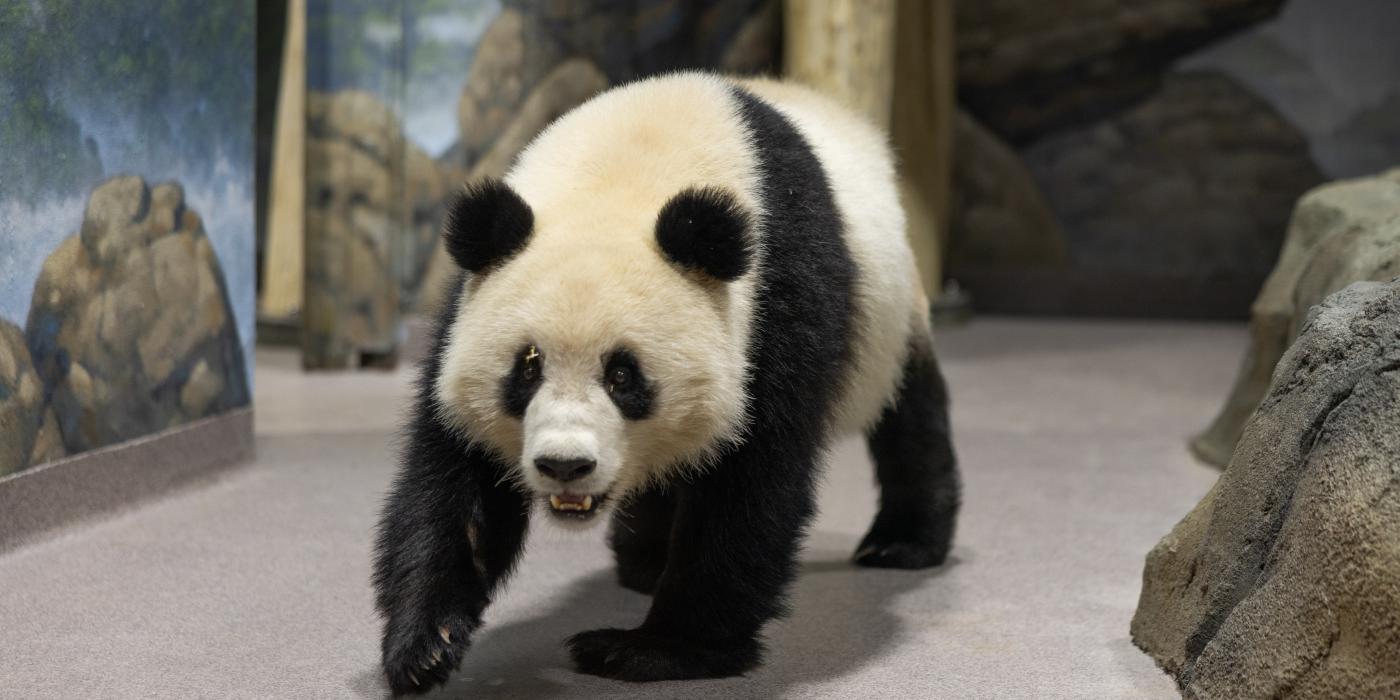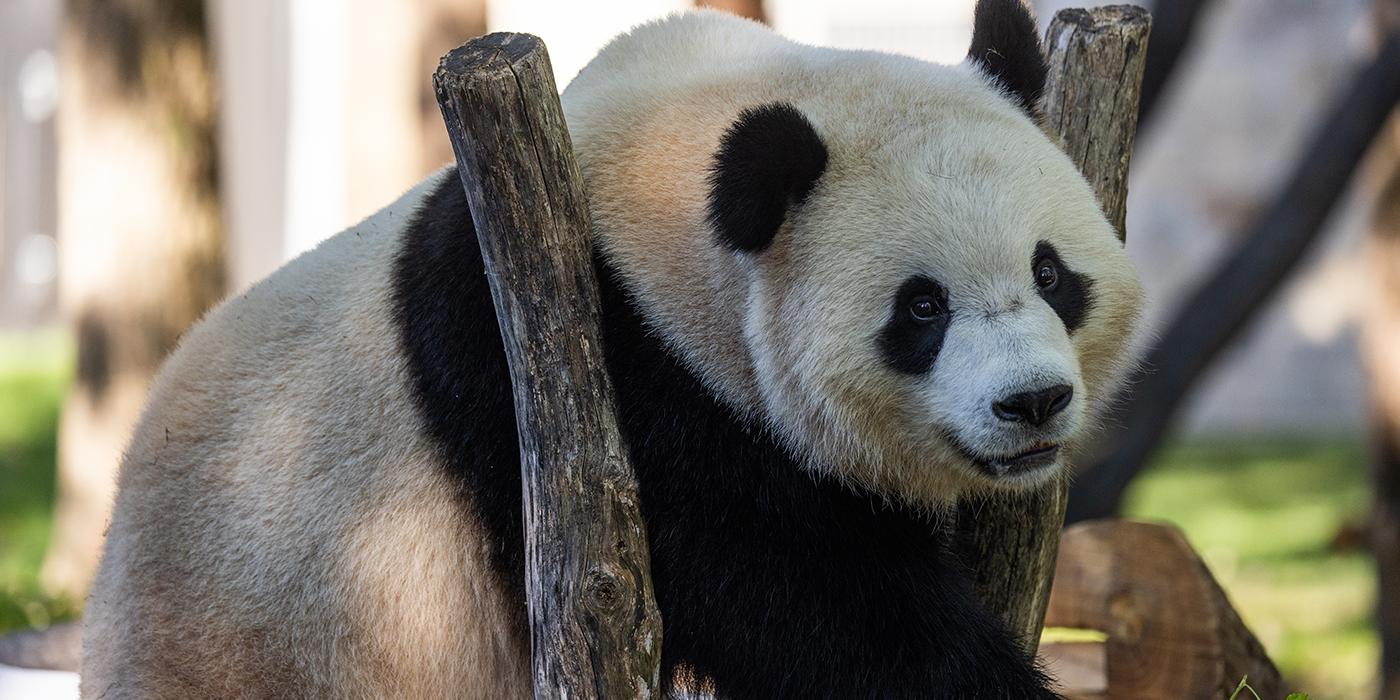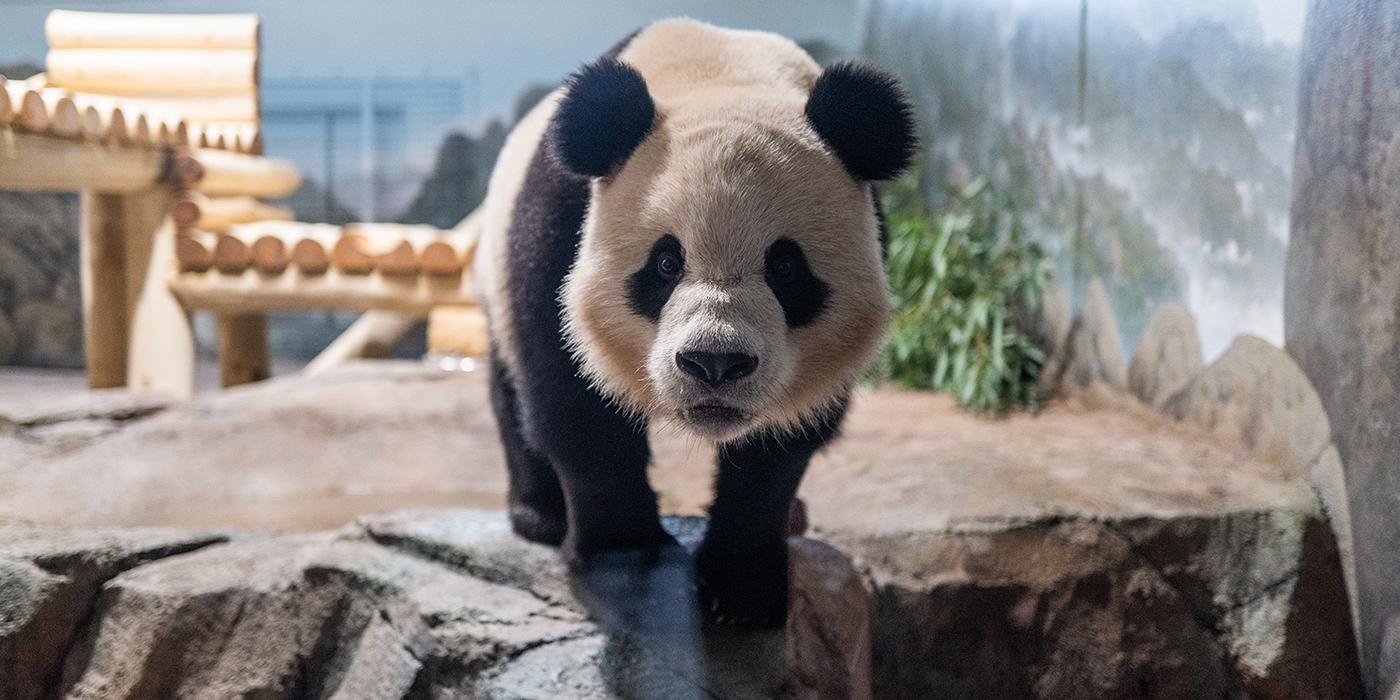Giant panda Update Jun 7, 2013
This week's giant panda update, written by keeper Marty Dearie, details how he and other keepers work with Mei Xiang and Tian Tian on training behaviors behind-the-scenes at the David M. Rubenstein Family Giant Panda Habitat.
How do you draw a blood sample from a giant panda? If the panda is Mei Xiang or Tian Tian keepers and veterinarians just ask. Mei Xiang and Tian Tian participate in a training program that helps us take care of them. Training allows keepers to ask the bear to do a certain behavior, such as "stand up." When the bear stands up we reward him or her with a treat. Some of their favorite treats are honey diluted in water or a piece of fruit.
The behaviors that we ask the bears to do during training help us during veterinary exams. For many years now both bears have been trained for voluntary blood draws. When we need to get a blood sample from Mei or Tian we will do that in the training chute. They will present their forearms when we ask and get a reward. The veterinarians are then able to draw blood from the bears, who will continue to receive rewards for holding the position for the duration of the blood draw. It is an amazing feat to be able to draw blood from an awake bear, and it requires a lot of trust between a keeper and a panda.
Training has also helped us monitor Mei Xiang at the end of past breeding seasons. She willingly participates in abdominal ultrasounds for our veterinarians. We use ultrasounds in addition to behavioral and hormonal monitoring to try and determine if Mei Xiang is pregnant or pseudopregnant. Just like her other training sessions, Mei gets honey water or fruit for participating in ultrasounds.
We started working with Mei on a new training behavior recently. We would like to be able to collect milk from her because there is not much data out there on the nutritional composition of giant panda milk. If Mei Xiang allows us to collect milk from her we could learn much more.
While these husbandry goals are the main reason we train the pandas, it is not the only reason. Training also provides the animals with a chance to use their brains. When we challenge them to learn a behavior we are engaging part of the brain that may not otherwise be used during a normal day.
Related Species:



